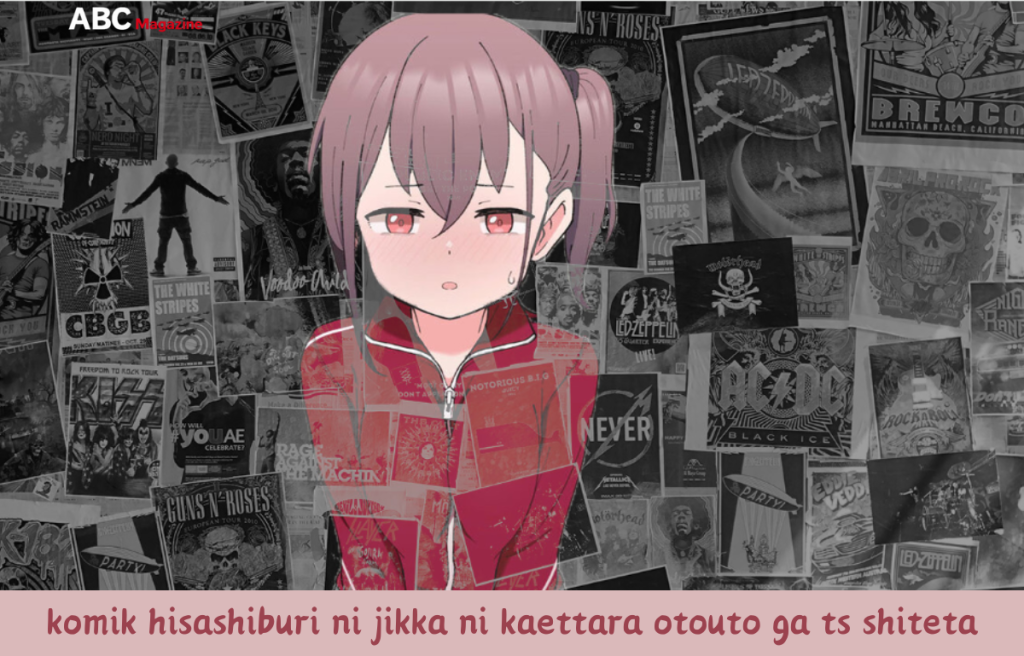In the vibrant tapestry of Japanese culture, certain phrases resonate deeply, capturing the essence of human experience with eloquence and nuance. Among these, “komik hisashiburi ni jikka ni kaettara otouto ga ts shiteta” stands as a testament to the intricacies of language, emotion, and societal dynamics. Join us as we unravel the layers of meaning woven into this evocative expression.
Exploring Language and Emotion
At its core, “komik hisashiburi ni jikka ni kaettara otouto ga ts shiteta” embodies the Japanese penchant for expressing complex emotions through concise language. The phrase conjures images of homecomings, long-awaited reunions, and the tender yet complicated bonds of siblinghood. Each syllable carries with it a weight of nostalgia, longing, and familial connection, resonating deeply with those who have experienced the bittersweet joy of returning home after a prolonged absence.
Unveiling the Essence Through Conversation
Engaging in a dialogue about “komik hisashiburi ni jikka ni kaettara otouto ga ts shiteta” allows us to further unravel its significance. Whether exchanged between family members or woven into literary works, this phrase sparks conversations that transcend language barriers. It serves as a bridge connecting individuals through shared experiences of longing, reunion, and familial love.
Cultural Insights and Observations

To truly understand the significance of “komik hisashiburi ni jikka ni kaettara otouto ga ts shiteta,” one must delve into the cultural context that shapes its meaning. Rooted in the rich tapestry of Japanese society, the phrase reflects societal norms surrounding familial duty, respect, and the passage of time. It offers a window into the intricacies of Japanese interpersonal relationships, where unspoken gestures and subtle nuances speak volumes.
Cultural Context and the Empire of Japan
To fully appreciate the nuances of “komik hisashiburi ni jikka ni kaettara otouto ga ts shiteta,” it is essential to consider its historical backdrop. Emerging from the cultural landscape of Japan, this phrase bears witness to the resilience of familial bonds amidst the shifting tides of time. It echoes the echoes of an empire, resonating with the echoes of generations past while forging connections that transcend borders.
Journeying Through the Japanese Language
The Japanese language is a tapestry woven with intricate characters and nuanced expressions, each contributing to the rich mosaic of cultural identity. “Komik hisashiburi ni jikka ni kaettara otouto ga ts shiteta” exemplifies this linguistic complexity, encapsulating layers of meaning within its carefully crafted syllables. Through the exploration of language, we gain insights into the soul of a nation and the essence of human connection.
Read More About How Was Church of the Highlands Exposed?
Essence of Homecoming and Observation
As we delve deeper into the essence of “komik hisashiburi ni jikka ni kaettara otouto ga ts shiteta,” we uncover the universal truths embedded within. It is a testament to the human experience of longing for home, seeking solace in the familiar embrace of loved ones. Through keen observation, we recognize the profound impact of returning home after a prolonged absence, as reflected in the subtle gestures and interactions captured by this evocative phrase.
Navigating the Complexity of Sibling Dynamics
Central to the narrative of “komik hisashiburi ni jikka ni kaettara otouto ga ts shiteta” are the dynamics of sibling relationships, a cornerstone of Japanese familial culture. From the bonds forged in childhood to the complexities of adult interactions, siblings play a pivotal role in shaping our identities and experiences. This phrase offers a glimpse into the intricacies of sibling dynamics, capturing moments of joy, tension, and unconditional love.
Embracing the Essence of Japan
In essence, “komik hisashiburi ni jikka ni kaettara otouto ga ts shiteta” encapsulates the spirit of Japan – a land where tradition and modernity coexist, and where the past intertwines with the present. It is a celebration of familial ties, cultural heritage, and the enduring resilience of the human spirit. Through our exploration of this phrase, we embark on a journey of discovery, uncovering the timeless truths that unite us all.
Conclusion
In our journey through the essence of “komik hisashiburi ni jikka ni kaettara otouto ga ts shiteta,” we have traversed the landscape of Japanese culture, language, and emotion. From its roots in familial bonds to its resonance with universal themes of longing and reunion, this phrase serves as a poignant reminder of the power of language to encapsulate the human experience. As we continue to explore the depths of cultural expression, let us embrace the connections that bind us together and celebrate the richness of diversity that enriches our world. Through dialogue, inquiry, and understanding, may we forge pathways of empathy and appreciation, bridging cultures and perspectives with the shared language of the heart.
Visit the homepage to stay connected with the latest updates and news.
Frequently Asked Questions – (FAQs)
What does “komik hisashiburi ni jikka ni kaettara otouto ga ts shiteta” mean?
It translates to “When I returned home after a long time, my brother did it” in English.
How is this phrase used in Japanese conversation?
While not commonly used in everyday discourse, it captures a sentiment often felt upon returning home after an extended absence, resonating with many individuals.
What cultural insights can be gleaned from “komik hisashiburi ni jikka ni kaettara otouto ga ts shiteta”?
The phrase offers a glimpse into the importance of familial bonds and the rituals surrounding homecoming in Japanese society, reflecting deep-seated social norms and values.
Why is understanding the cultural context of this phrase important?
By understanding the cultural context, one can appreciate the nuances and depth of meaning behind the phrase, allowing for a richer interpretation and appreciation of Japanese culture.
How can I incorporate “komik hisashiburi ni jikka ni kaettara otouto ga ts shiteta” into my writing or conversation?
You can use the phrase to convey the emotions and nuances associated with returning home after a long absence, particularly in the context of familial relationships and cultural experiences.
